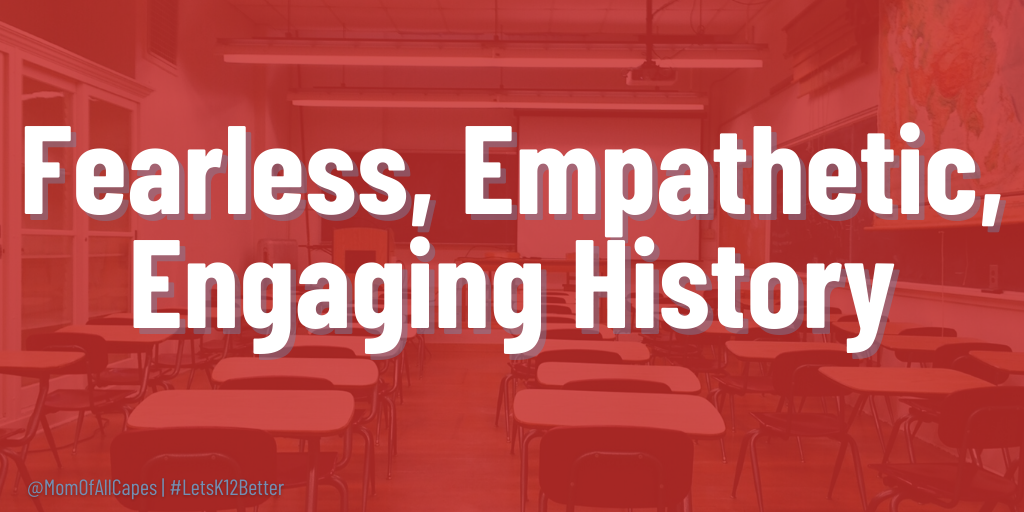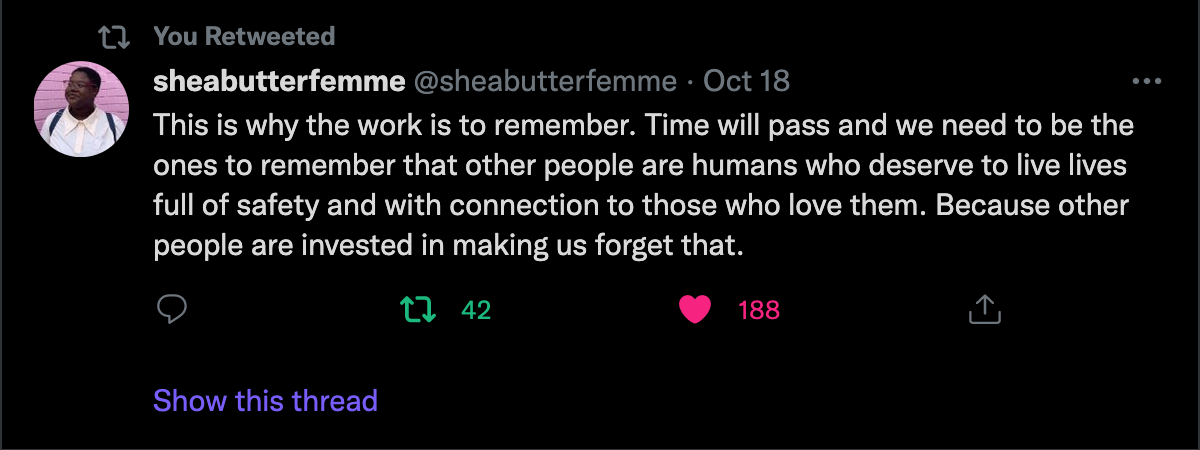|
What are we afraid of? Techniques like debate, socratic method, student-led projects, hands-on civic learning, and the host of other best practices in education provide a space for students to approach complex 3-dimensional history and current events in a contained and age-appropriate way. These strategies guide our kids through how to think outside of themselves and to challenge themselves to be more inquisitive about life and how we make it better for everyone. These strategies and opportunities challenge our kids to understand that we are not all having an equal or even equitable experience and it gives them the skills to tackle that fact, honestly and holistically. We can use best practices in history and civics to foster deeper student engagement and historical thinking while bringing in missing narratives into the social studies classroom. So why are we letting the fear of what they’ll learn, prevent them from ever engaging in the journey?
Texas Senate Bill 3 passed, expanding and replacing the prior "critical race theory" law, House Bill 3979 that passed over the summer. It's not the only state chipping away legislatively at their state standards to ensure that students are "protected" from social justice, critical race theory, and a myriad of other progressive ideologies that surfaced during 2020 and 2021. We watched this fall as parents also engaged in campaigns at the school board level, in mob-like fashion with signs against critical race theory and demanding bans on books by diverse authors or about diverse content. [Please equip yourself with this knowledge on CRT: "A Lesson on Critical Race Theory" by the American Bar Association]
Texas Senate Bill 3 is ridiculous. And if you can’t say it, we said it for you, but we hope that you have the courage to say it too. We looked at the bill as a family, and we pulled out a few things directly from that bill that gave us pause… "a teacher may not be compelled to discuss a widely debated and currently controversial issue of public policy or social affairs." And then this quote where the bill also restricts students from gaining classroom credit for engaging in... “political activism, lobbying, or efforts to persuade members of the legislative or executive branch at the federal, state, or local level to take specific actions by direct communication; or participation in any internship, practicum, or similar activity involving social policy advocacy or public policy advocacy” This very poignant tweet from October by @sheabutterfemme, so eloquently sums up my frustration...
We need all kids to engage in the process of remembering. Meaning understanding history. Not a whitewashed history but a history that is true to their identity and their lived experiences.
In a conversation with poet Nikki Giovanni, James Baldwin so eloquently states: “The standards of the civilization into which you are born are first outside of you, and by the time you get to be a man they’re inside of you.You know, what the world does to you, if the world does it to you long enough and effectively enough, you begin to do to yourself. You become a collaborator, an accomplice of your own murderers, because you believe the same things they do” Controversial issues and social policy advocacy focus on the survival of disenfranchised and marginalized people, which in America is most people (whether they know it or not). For a state to pass a bill that explicitly does not support (and even restricts) opportunities for students to gain civic experiences like lobbying or even communicating with elected officials at any level... that should be alarming for parents. From my experience, middle and high school kids have the capacity, the desire, and the ability to discuss controversial topics eloquently and often with more grace than adults…And this is across all socioeconomic segments; regions of the country; and race and ethnicity. And many educators are trained or continue their training to help kids have fruitful explorations into a variety of values and ideas that come up during these conversations. As a parent who is really rooting for the U.S. K12 education system, I must say that what’s happening in Texas should have all of us talking about how we can stop and do this better… how do present history with the intention to center the humanity of all people; build respect for ourselves and others; provide context for solving today’s problems; and reject fear Remember, we started 2021 with an insurrection inspired by the idea that our election outcome was somehow fraudulent. And leading up to January 6th, we watched our neighbors harass their fellow citizens counting votes in major urban centers and in other places where the outcome might be tight. If we don’t want kids to engage in a broader, 3-dimensional, and often challenging history, or engage in experiences that apply their knowledge to challenge the adults to be better, what are we doing this for?
We encourage you to listen to this episode with Dr. Katie Perrotta, Assistant Professor of Middle Grades and Secondary Education with an emphasis on social studies education in the Mercer University College of Education. To us, Dr. Perrotta’s work on historical empathy seems like a timely reminder that many educators are trained in best practices that support students on their journey to explore their own values and ideas about our country, which if you believe in liberty... that's what you want, free thinkers with the capacity to challenge themselves and others. But we also want kids to not only be able to think for themselves, but also understand context and have the capacity to connect with other people facing challenges.
Comments are closed.
|
I'm a former teacher and former college athlete, currently working to make life more equitable for all people. My mission is to get parents to partner with their child's teacher.
|


